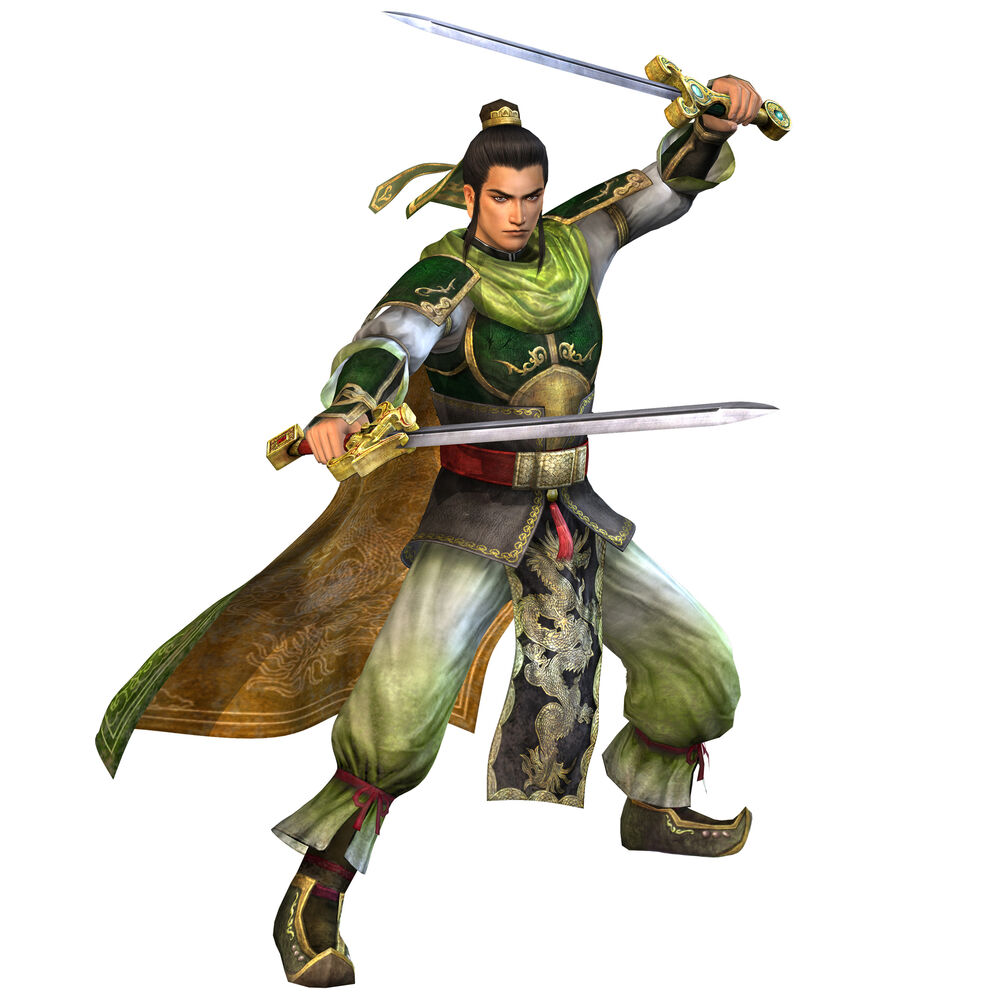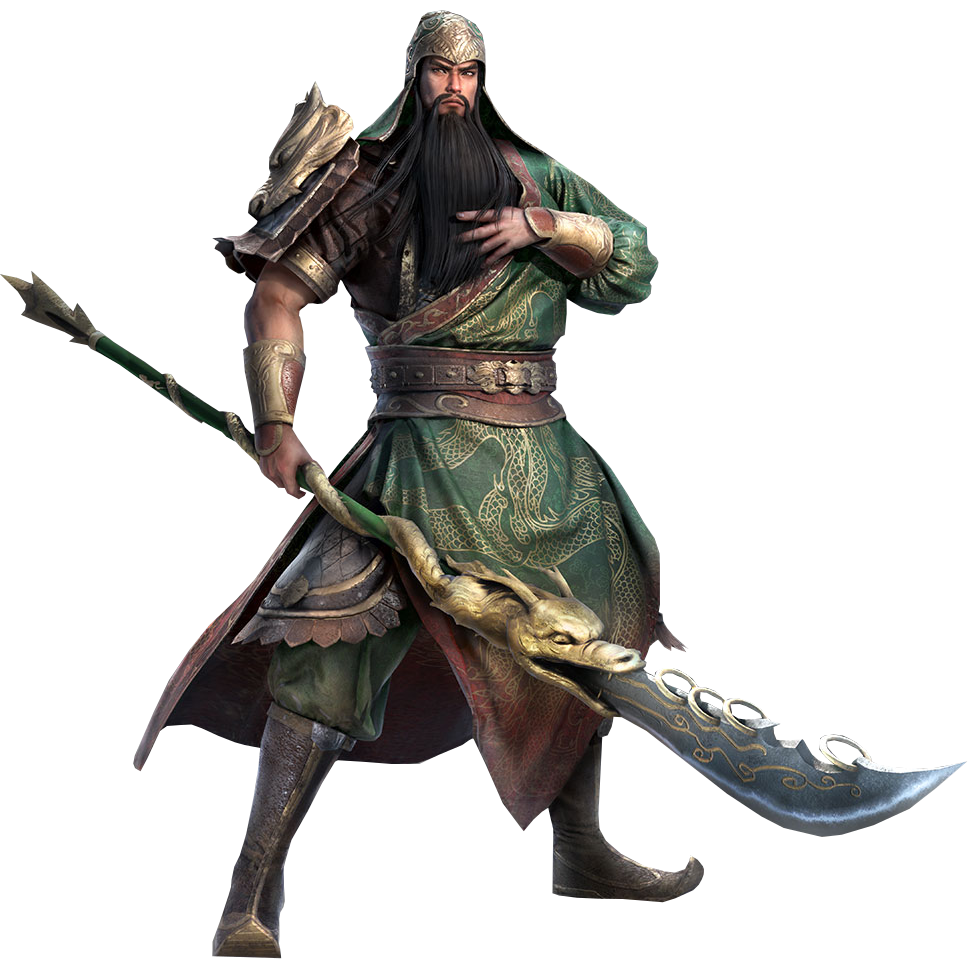Dynasty Warriors The Movie: By Character
One of the longest running beat ’em up game franchises, Dynasty Warriors, saw its film adaptation release on Netflix this week. The long running game series pits second century Chinese warlords against one another and thousands of fodder troops. While being based off of the pseudo-historical “Romance of the Three Kingdoms” novel, Dynasty Warriors the game takes a ton of liberties with its story. I’m sure people weren’t summoning dragons, shooting lasers and lighting out of fans, or jumping 20 feet in the air in year 198. And much like the game, the Dynasty Warriors film also plays fast and loose with its action. Instead of going for historical accuracy, it follows the model of the game. The end result is something more akin to Dragonball than a period piece. But let’s take a look at some of the major characters and how they differ between the games and film.
Liu Bei

If there was a “main character” of ROTK, it was Liu Bei. Positioned as a righteous, humble man who came from a fallen royal bloodline, he longed to restore the Han dynasty and lead the land into a new era of justice. Alongside his sworn brothers, Guan Yu and Zhang Fei, he laid the foundations of what would become the Shu-Han Kingdom. Liu Bei is often portrayed as a compassionate champion of the people, who only acted for the good of the land.
The games actually do a much better job at exploring the complexities of such a character. In the film, Liu Bei is our lawful good. Just, strong-willed and loyal. But he’s one dimensional. In the games & novel, he isn’t above using subterfuge and espionage. And, after suffering a traumatic personally loss, he even becomes fueled by vengeance. It’s hard to focus on that kind of duality in a two hour film, but in the movie, Liu Bei felt…boring.
Cao Cao

The hero of his own story and one of the most celebrated (and feared) warlords of his time. Cao Cao was cunning, ruthless and an exact foil to Liu Bei in almost every way. It’s no shock to see that the film takes the time to establish this rift among two great men. The film actually does a really good job at establishing Cao Cao as an anti-hero. He helps organize the coalition against the film’s villain, Dong Zhou, and he lauds Guan Yu and Liu Bei for their courage. It even touches on Cao Cao’s intense migraines, which some historians think was a brain tumor. But he also isn’t above killing innocents to save himself, or sacrificing soldiers to further his cause.
In the games, he’s much of the same. Functioning as the villian for just about everyone’s story but his own. As sort of a proto-Machiavelli, Cao Cao is a “ends justify means” type of person. He often calls himself the “Hero of Chaos” and sometimes does things just to see what strange outcome they may have. In history, the game and the film, he’s an infinitely interesting personality and a magnetic leader.
Lu Bu
Even if you’ve never played Dynasty Warriors you know not to pursue Lu Bu. As the certifiable, untouchable badass of his era Lu Bu was a mountain of a man that could fell 10k enemies in one battle. Now while we know that’s surely hyperbolic, that didn’t stop the games and the film from highlighting his monstrous strength. The games also follow more of his portray in the ROTK novel and history. They highlight his treacherous nature and poor mind for strategy.

Its with Lu Bu where the film mostly flies off the rails. The displays of power he shows off in the film defy logic in the worst kind of way. And some of the most important moments of Lu Bu’s life, moments that change the course of the central conflict at Hu Lao Pass, are glossed over. Instead, there’s a focus on his super saiyan like powers and a out of nowhere romance with Diao Chan.
Dong Zhou
If there was someone besides Cao Cao that the film gets mostly right its Dong Zhou. History sees in Dong Zhou as the catalyst for the Three Kingdoms period. He threw the country into utter turmoil by deposing the emperor, and executing a number of officials. Had this not occurred Cao Cao doesn’t attempt to assassinate him, and we don’t get the battle at Hu Lao Pass.
Guan Yu
If you’d have told me that the Dynasty Warriors film was the Guan Yu story, I would have believed you. Even though Liu Bei and Cao Cao are the clear foils, Guan Yu is given a ton of screen time and dialogue. He has extended fight scenes and is positioned as the strongest of the three “brothers”. While it may be shocking to Western audiences to see such a shining focus on a side character, Guan Yu is indeed a special case.

Because of his real life loyalty, martial prowess, and integrity, Guan Yu is still worshiped in China today. Such reverence is hard to convey in the games. Guan Yu is still a lauded general in Liu Bei’s army, but nothing even close to the deification he recieved in real life.
Zhang Fei
Zhang Fei got did dirty. Having only two or three speaking lines in the film, Zhang Fei is relegated to the background behind his counterparts. Known in history for being a bit rougher than the other two “brothers” Zhang Fei got little to know shine. Even in their battle scenes its Zhang Fei who is often the one receiving the most punishment. He’s much more fleshed out in the games, being the “muscle” of the trio and often being the first to come to Liu Bei’s defense.
Everyone Else
Even with all that there’s still tons of people left underdeveloped by the film. Diao Chan, who lead to Lu Bu defecting from Dong Zhou isn’t introduced until VERY late in the film. Sun Jian the founder of the Wu Kingdom, is glossed over in two scenes. Yuan Shao, one of Cao Cao’s principle northern rivals, is minimized. And Yuan Shu isn’t even mentioned at all.
The Dynasty Warriors film actually had the potential to pull some people into a mostly niche video game series. But instead it’s mostly going to write it off as a goofy, over the top, button masher with no value beyond its surface. And honestly, they wouldn’t be completely wrong, but they’d never go and see for themselves.
Header Image: Netflix/HMV Digital China Group Limited

